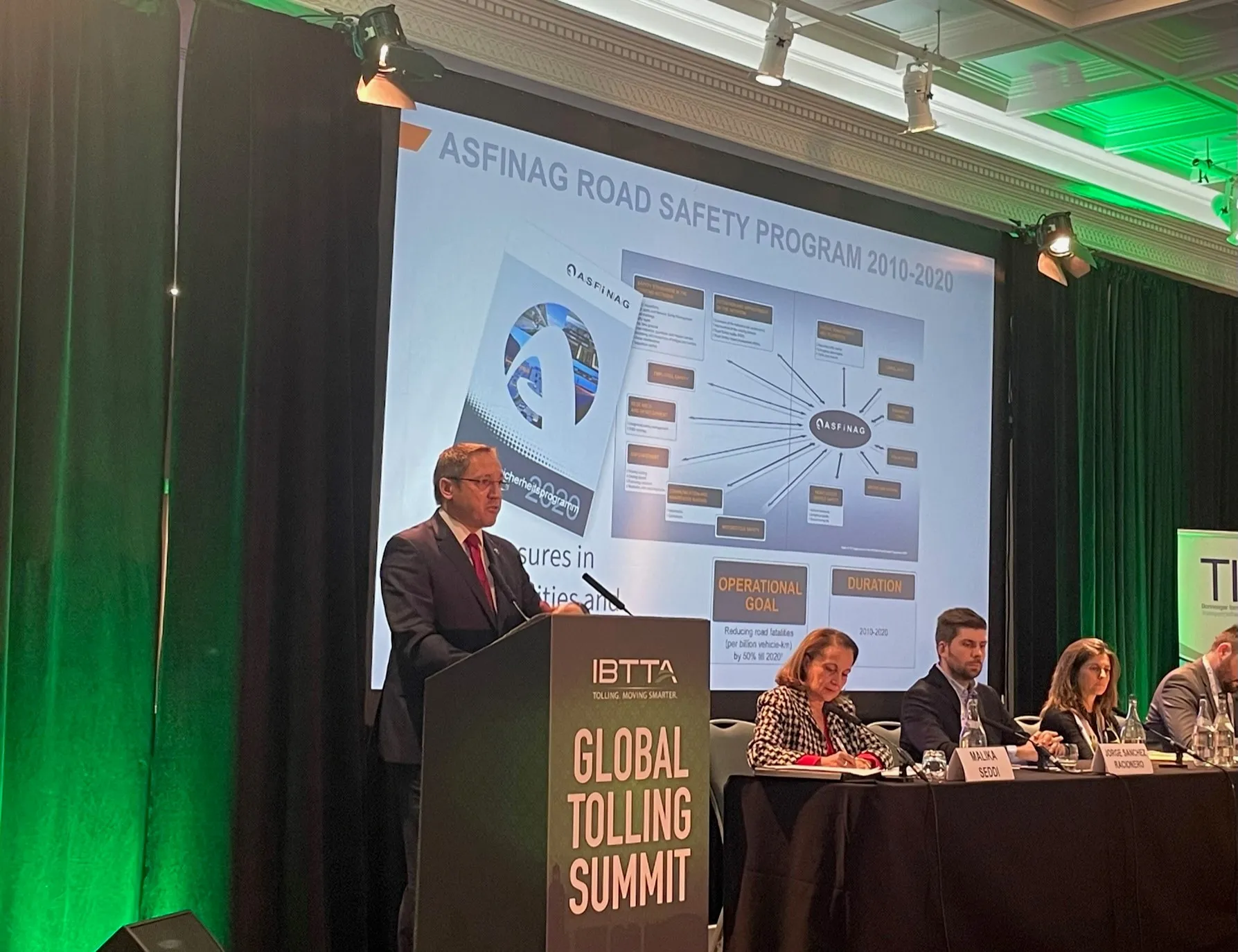The International Bridge, Tunnel and Turnpike Association (IBTTA) is to host an international summit on the future of tolling, attended by with some of the world’s top transportation and mobility experts. The summit, All-Electronic Tolling (AET), Managed Lanes and Interoperability Summit: Technology and Business of Innovative Tolling”, co-hosted by New England Toll Operators (NETO), will be held on 24-26 July in Boston, Massachusetts at the Boston Marriott Copley Plaza.
Keynote speaker, David L. Strickl
July 14, 2016
Read time: 2 mins
The 3804 International Bridge, Tunnel and Turnpike Association (IBTTA) is to host an international summit on the future of tolling, attended by with some of the world’s top transportation and mobility experts. The summit, All-Electronic Tolling (AET), Managed Lanes and Interoperability Summit: Technology and Business of Innovative Tolling”, co-hosted by New England Toll Operators (NETO), will be held on 24-26 July in Boston, Massachusetts at the Boston Marriott Copley Plaza.
Keynote speaker, David L. Strickland, partner, Venable, Washington, DC, and former administrator of the National Highway Traffic Safety Administration (NHTSA) will address a range of topics from highway safety, auto safety and how technology is rapidly changing transit and transportation as we know it during the opening session of the summit on Sunday afternoon.
Speakers include Earl J. ‘Buddy’ Croft, III, executive director,6162 Rhode Island Turnpike and Bridge Authority, Providence, Rhode Island and president of IBTTA; and Patrick D. Jones, executive director and CEO, IBTTA. Other speakers include representatives of US toll authorities, Volpe, Touch Titans, North Central Texas Council of Governments and the Reason Foundation. Speakers from Austria, Italy, Mexico, Portugal and Israel will add to the summit’s international perspective.
"With more than 500 transportation leaders from around the globe gathering in Boston, the summit will showcase the latest and best innovations in tolling and transportation, as well as lessons learned from tolling projects," said Croft.
Keynote speaker, David L. Strickland, partner, Venable, Washington, DC, and former administrator of the National Highway Traffic Safety Administration (NHTSA) will address a range of topics from highway safety, auto safety and how technology is rapidly changing transit and transportation as we know it during the opening session of the summit on Sunday afternoon.
Speakers include Earl J. ‘Buddy’ Croft, III, executive director,
"With more than 500 transportation leaders from around the globe gathering in Boston, the summit will showcase the latest and best innovations in tolling and transportation, as well as lessons learned from tolling projects," said Croft.








